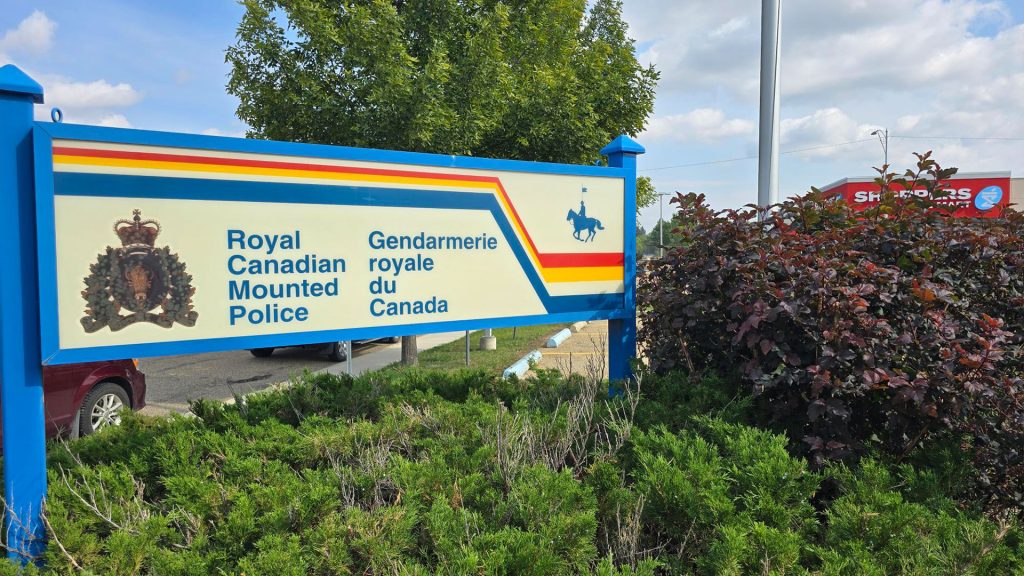
Photo: APTN file
A new report by the Civilian Review and Complaints Commission (CRCC) for the RCMP shows public complaints against the Mounties have increased across Canada.
“Public complaints filed against RCMP members continued to trend upwards over the past five years …,” the agency said in a news release Friday announcing it had tabled its 2023-24 annual report to Parliament.
As a result, it is dealing with a “public investigation backlog”, the release noted, even though it “finalized” 52 per cent more complaints than the year before.
The CRCC receives complaints about the on-duty conduct of RCMP members from the public but the investigations are conducted by the RCMP.
“The CRCC does review complaints about investigations upon request from the public when they are dissatisfied with how the RCMP has addressed their complaint allegation(s),” a spokesperson said in an email to APTN News. “Therefore, the investigations and any backlogs belong to the RCMP.”
In 2023-24, the report says it finalized 3,293 complaint investigations containing 8,034 allegations.
Top 3 allegations
The report noted the Top 3 allegations against officers nationally remain “neglect of duty, improper attitude and improper use of force.”
This is different in the North, the provincial/territorial breakdown shows, where allegations include “mishandling of property, improper arrest and improper search of premises.”
The report comes at a time of heightened concern about fatal encounters between Indigenous Peoples and members of the RCMP and municipal police forces. Parliamentarians debated the issue in October and First Nations leaders this week called for a national inquiry in response to the deaths of 13 since the end of August.
The release said there were 2,249 active complaint investigations as of March 31, with 1,558 investigations having exceeded the RCMP’s internal 120-day service standard (including 34 public complaints that were filed prior to 2019-20).
“Year after year, the number of complaints filed by members of the public has risen,” said Michelaine Lahaie, chairperson of the CRCC.
A map shows where 13 Indigenous Peoples were killed after interacting with police in Canada since Aug. 29. Source: APTN News
That's why the organization made a number of improvements in the past fiscal year, she noted, including adding a “Senior Advisor, Indigenous Affairs” to the team.
“This position is critical to the CRCC gaining a better understanding of the systemic barriers that exist and prevent Indigenous peoples from making use of the complaint system,” Lahaie said in her forward in the report.
“We understand that the CRCC needs to change its process for accepting complaints, but such change can only happen if we can define the change required and map out the way forward.”
The CRCC also created a new public complaint category, Lahaie said.
“Previously, complaints that alleged biased or discriminatory behaviour were often classified as improper attitude,” she explained.
Bias
“Starting April 2024, RCMP public complaint investigators will categorize these complaint allegations under "bias" when it is alleged that "actions, inactions or decisions made by a member resulted in the inequitable treatment of a person or group."
She noted this would allow for better identification and understanding of potential trends in biased policing.
The CRCC hosted a meeting of heads of police oversight agencies at the federal, provincial and territorial levels in October 2023 to discuss “best practices”, among other things, Lahaie added.
“This annual meeting also shines a spotlight on the differences between the legislation that governs police oversight and review agencies across the country,” she said. “These differences can make navigating the various systems difficult for Canadians who have negative interactions with police.
“While the various complaint bodies committed many years ago to a "no wrong door" policy when it comes to taking complaints from members of the public, there is still work to be done.:
Lahaie said Canadians should know what to expect when they file a complaint about police misconduct.
“A greater harmonization of process and more importantly, the legislated ability for all organizations to work together towards excellence in policing are both critical to improving public trust,” she noted.










